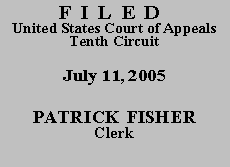

| NOEL M. GONZAGA,
Plaintiff-Appellant, v. SYNTHES, INC.; SYNTHES (USA), Defendants-Appellees. |
|
Plaintiff Noel M. Gonzaga appeals the district court's grant of summary judgment in favor of defendants Synthes, Inc. and Synthes (USA), on his claims alleging race and national origin discrimination and retaliation under Title VII, 42 U.S.C. §§ 2000e-through 2000e-17.(1) Gonzaga raises the following issues: 1) Whether the district court erred in refusing to consider objective evidence that he completed a Corrective Action Plan (CAP) in assessing whether he presented a genuine issue of material fact as to pretext; 2) Whether the district court erred in applying the logic of Morgan v. Hilti, Inc., 108 F.3d 1319 (10th Cir. 1997) to grant summary judgment on the Title VII retaliation claim; 3) Whether the district court erred in its standard of review on the motion for summary judgment, by failing to view the evidence presented and reasonable inferences therefrom in the light most favorable to the non-moving party.
We review the district court's grant of summary judgment de novo, applying the same legal standard used by the district court. Summary judgment is appropriate if the pleadings, depositions, answers to interrogatories, and admissions on file, together with the affidavits, if any, show that there is no genuine issue as to any material fact and that the moving party is entitled to a judgment as a matter of law. When applying this standard, we view the evidence and draw reasonable inferences therefrom in the light most favorable to the nonmoving party.
Kendrick v. Penske Tranp. Servs., Inc., 220 F.3d 1220, 1225 (10th Cir. 2000) (quotations omitted). Having reviewed the briefs, the record, and the applicable law pursuant to the above-mentioned standards, we conclude that the district court correctly decided this case. We therefore AFFIRM the challenged decision for substantially the same reasons stated by the district court in its order of March 2, 2004.
Entered for the Court
Circuit Judge
*. This order and judgment is not binding precedent, except under the doctrines of law of the case, res judicata, and collateral estoppel. The court generally disfavors the citation of orders and judgments; nevertheless, an order and judgment may be cited under the terms and conditions of 10th Cir. R. 36.3.
1. The district court also granted summary judgment in favor of defendants on Gonzaga's ERISA claim, but Gonzaga did not appeal that decision. See Aplt. Br. at 2.